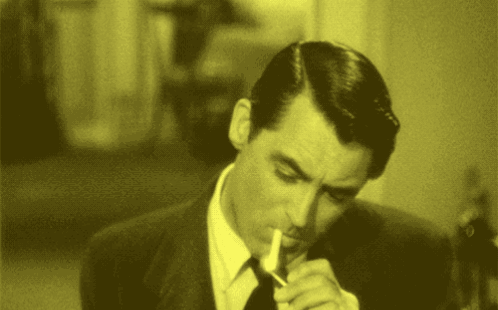This one secret makes advertising 1,023x easier.
I might need to jump through more hoops in the future to prove this wasn’t written by AI.
For now, mixing self-help with advertising and suave 50s A-list actors should suffice.
What I’m about to share is advertising gold; adjacently, maybe it’ll also level up your self-awareness in a way you’ve never considered.
Ready? Here’s the kicker.
A huge part of advertising stems from this one idea:
No human on earth wants to feel lack.
Huge emphasis on the word feel, as you can be homeless yet somehow feel at home.
To prove this statement, let’s use Maslow’s most famous work.
Maslow’s Hierarchy of Needs
At the bottom of the pyramid, you have air, water, food, shelter. Next comes security, employment, and health. As you continue up, you pass love, then esteem, and finally self-actualization, which just means feeling fulfilled.
These are all human needs.
If you lack any of them, you will naturally want them.
With marketing, in all its artistically mischievous deception, we’re now being told we lack more than ever.
Not in the literal sense, like go buy food or get a job.
But in the emotional sense, like feeling hungry when you’re not, or feeling you’re not earning enough when you are.
I’ve touched on this before with cigarettes: women started smoking because it was pitched as a liberating power move against men.
Women were sitting pretty until they were made to feel they lacked power, and cigarettes were the only solution.
Back to the Advertising
When you’re figuring out what message to use for your advertising, pick one of the areas in Maslow’s pyramid and have your customers feel lack in that area, all because they’re not using your offer. To put it simply: in order to get what they believe they lack, they will need your solution.
You’re not selling cigarettes, you’re selling power. Same with fragrances: you’re not selling patchouli and cedar, you’re selling romance, sex, desire.
Comparison and lack are the same
All this hubbub around lack comes back to Cary Grant, because I say so.
A 50s actor, Grant was the suavest man out there.
He was one of the best actors of his time. The roles he played were so popular that it led to him being quoted as saying:
“Everyone wants to be Cary Grant. Even I want to be Cary Grant.”
Because of his charisma, everyone saw that, and everyone wanted to be that.
Hell, if people saw his films now, I think it’d still be the case.
All it takes is for us to think, “I’m not as suave as him.” People saw Cary Grant move, speak, command a room, and suddenly they weren’t at peace with themselves, longing to be better, different, more.
You see how much deeper this goes than just saying, “Comparison is the thief of joy.”
Comparison plays a role on the surface. The deeper we choose to analyze it, the more we uncover that it all stems from experiencing some form of lack, wanting to be more, never being content, never satisfied with where we are.
Closing Remarks
I didn’t intend on it coming to this, but the more I think about it, the more it all comes back to gratitude for what we have and are, and how often we’re ungrateful for even the smallest of things.
Easier said than done, in my view.
Hungry or tired? Eat, then sleep, by all means.
It’s those moments when you find yourself being told that because you lack something new, it’ll have a direct impact on other areas of your life.
When, in reality, going in the opposite direction — stripping away the noise and nonsense — can do just that.
In most cases, you don’t need to be Cary Grant, or add more to your life.
Maybe it all comes down to removing what you believe to be necessary, realizing that what you think you lack isn’t that serious.
Or so I think,
George

